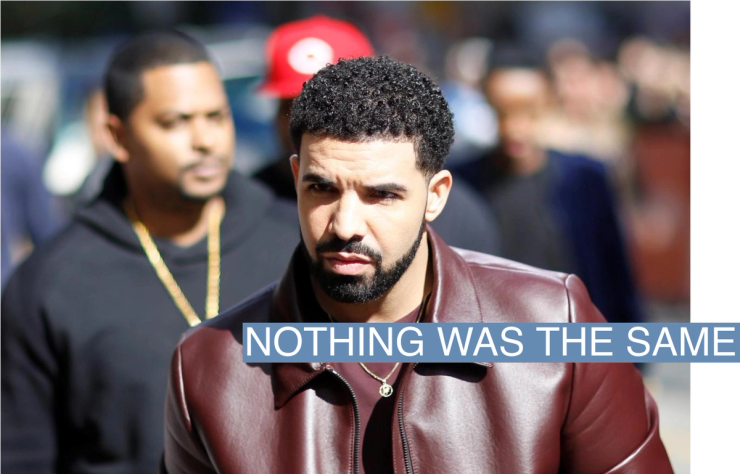The News
It sounds like it features two of the biggest artists in the world.
It has original lyrics.
It has a trap beat that could fit in at the top of the charts.
And it’s made by artificial intelligence.
The song, called “Heart on My Sleeve,” sounds like a collaboration between Drake and The Weeknd. It was actually made by an anonymous creator called Ghostwriter, who used AI to replicate the artists’ voices to make a new track.
Ghostwriter uploaded the song to TikTok, YouTube, and Spotify, where it generated over 500,000 streams by Monday. On Tuesday, the song was no longer available on the platform.
It’s part of a flood of AI-generated music that’s starting to hit social media platforms and streaming services. And it probably won’t slow down any time soon.
But as more AI songs go viral, it raises several legal questions, an entertainment lawyer told Semafor, likely leading to lawsuits that will determine the future of AI’s overlap with the music industry.
Step Back
By scraping artists’ existing songs, AI tools have made it easy for everyday users to clone the voice of a singer or rapper, and replicate their voice on a new or existing track.
In recent weeks, a proliferation of AI covers — for example, Rihanna singing Beyoncé’s “Cuff It” — have gone viral on Twitter and TikTok.
Artists have begun to notice. After an AI rendition of Drake performing “Munch” by rapper Ice Spice made the rounds online, he reacted on Instagram, saying “This is the final straw AI.”
Know More
Marc Ostrow, a New York-based entertainment and copyright lawyer, told Semafor that the issue of AI and music is defined by a number of open questions that will likely be resolved “by some combination of litigation and/or legislation.” Here’s what to watch for.
Do AI music tools infringe on copyright?
The Recording Industry Association of America thinks so. It said last year that AI platforms that train their algorithms on existing songs infringe on the rights of artists who wrote and recorded them.
However, Ostrow said that owners of AI machinery could make the argument that this would be fair use. A landmark 2015 ruling — related to the legality of Google Books — found that a copyrighted work can be used without violating the law if it is “transformed” enough.
What about these sound-alike songs?
Since AI can so easily replicate the voices of popular artists, we could soon see a proliferation of tracks that purport to be from real artists, like the fake Drake and The Weeknd song.
Ostrow said artists could have legal standing to sue the creators of these songs based on their “right to publicity,” which protects the likeness of celebrities. In the late 1980s, for example, Bette Midler successfully sued Ford Motor Co. after they used a singer that sounded like her in an ad.
The same standard could apply here, Ostrow said, if the AI tracks are being used for commercial purposes.
“If I’m releasing a record that sounds like Drake, but it’s not Drake, that’s clearly for commercial purposes,” he said.
But the laws on this vary from state to state, so “if you’re a celebrity, make sure you’re a resident and you die in a state that protects publicity rights after death,” he said.
What will streaming services do?
As more and more AI-generated music is uploaded online, streaming platforms like Spotify, Apple Music, and YouTube could have some legal protection.
Federal law states that the online platforms can’t be held liable for copyright infringement just because an illegal work is uploaded to their site, but they have to take it down if they get a request to do so from the copyright holder.
Still, the streaming services could get caught in the AI crossfires. Universal Music Group, a giant in the industry, recently urged Spotify and Apple Music to block AI platforms from scraping melodies and lyrics from their artists’ songs, the Financial Times reported.
Notable
- Some in the music industry are actively embracing AI. The K-pop group Aespa is known for having four AI members, alongside its four human members. They sometimes interact in interviews and music videos.
- The larger art world is continuing to grapple with the issue. The winner of a prestigious photography award turned down the prize this week after revealing he had used AI to test the competition.


